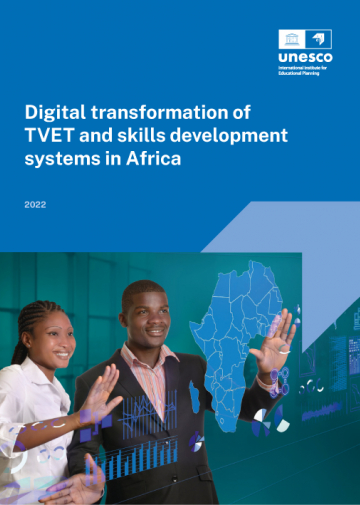Accelerating the digitalization of vocational training in Africa
Are TVET systems on the African continent struggling to enter the digital age? This is one of the questions addressed in a recent IIEP-UNESCO report on "Digital Transformation of TVET and Skills Development Systems in Africa". Targeting five countries on the continent (Madagascar, Nigeria, Rwanda, Chad, and Tunisia), the report calls for overcoming key challenges in the process of digitally transforming skills development systems in the post-pandemic phase.
While ICTs are essential for the transmission of digital knowledge, many countries in Africa are struggling to overcome the challenge of low internet coverage and poor digital infrastructure. Weak electrification networks and difficulties in technical and financial access hamper government attempts to bring digital technology to the technical and vocational education and training (TVET) sector. Yet this is a political priority.
The Continental Education Strategy 2016-2025 developed by the African Union in 2018 aims to build the national, regional and continental TVET ecosystem. "Previously, digitization was seen as an upcoming issue, which mostly concerned the most advanced education and training schemes. But with the advent of the covid 19 crisis, there has been a realization that it is an unavoidable priority for everyone,” said Nicola Tissi, TVET specialist at IIEP-UNESCO, coordinator of the study.


